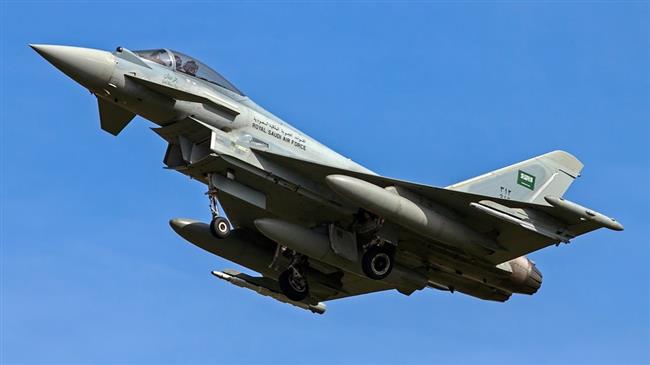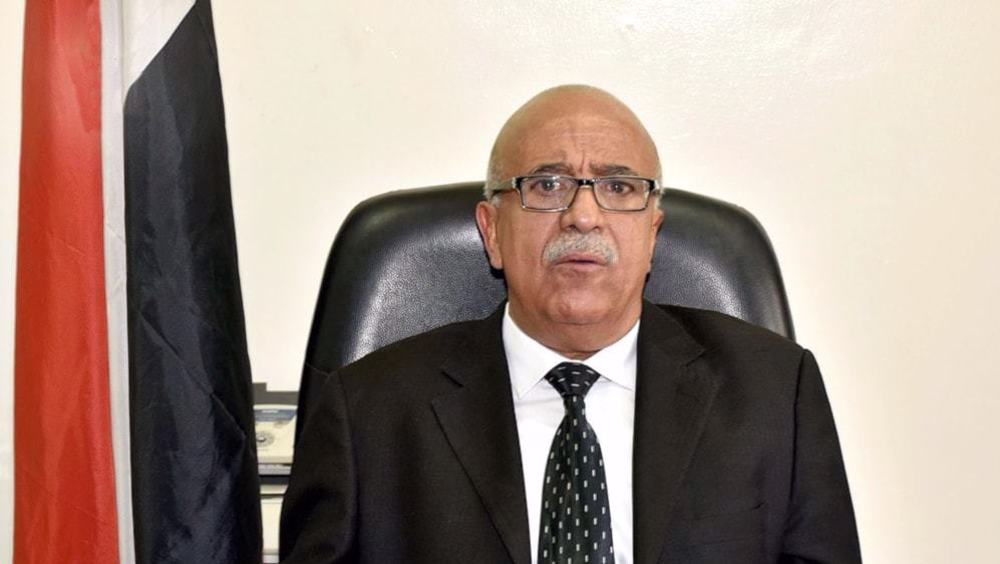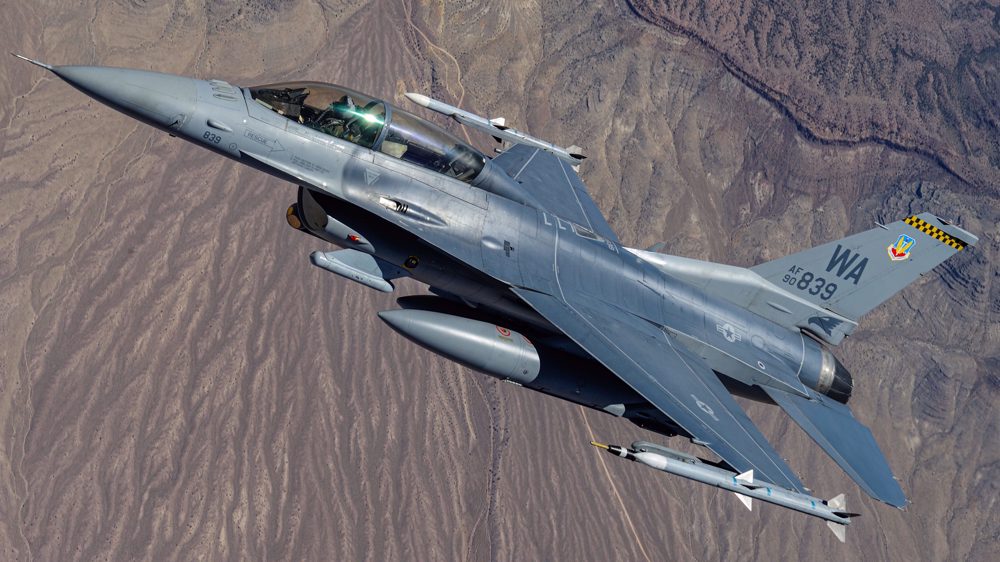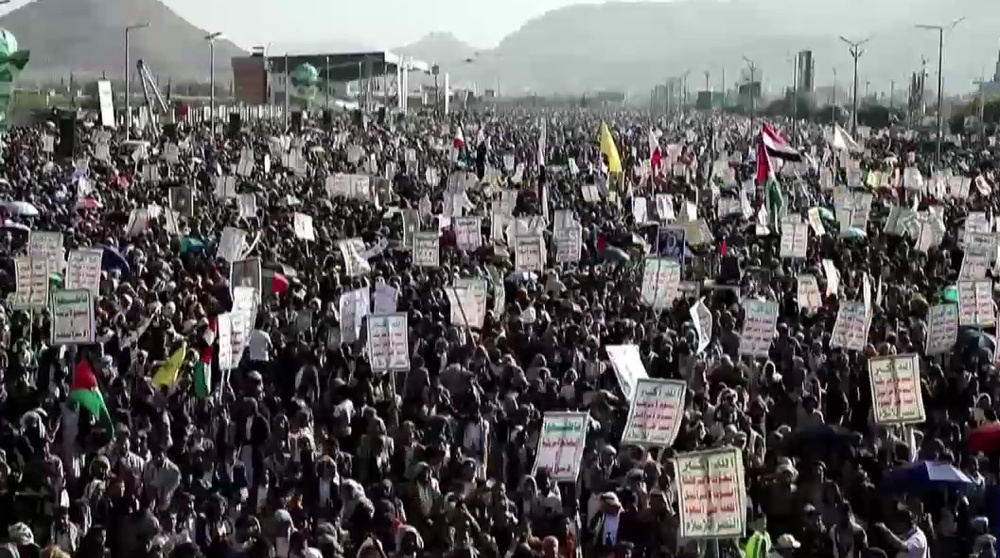UK committee on arms sales ignores Saudi arms deals, Yemen war in key inquiry
A UK parliamentary panel tasked with scrutinizing the country’s weapons sales in 2017 has come under fire for turning a blind eye on London’s extensive arms deals with Saudi Arabia and their effects on the people of Yemen.
The Committees on Arms Export Controls (CAEC) launched its inquiry into Prime Minister Theresa May’s government's latest 2017 Strategic Export Controls Annual Report in late 2018 and held its first evidence session by inviting a number of officials and sales experts to the House of Commons last week.
However, the committee’s agenda seems to be void of any reference to London’s dealings with the Riyadh regime, which has become the largest purchaser of UK-made weapons since 2015, the year it launched a deadly military aggression against its impoverished southern neighbor, Yemen.
The inquiry covers both the technicalities of the policy, such as the different types of arms export licenses issued by the government and its political aspect to answer questions such as the consequences of a no-deal Brexit on the country’s weapons sales.
The exclusion of the conflict in Yemen has raised questions among activists and campaign groups, specially since the panel’s previous work on the government’s 2016 policy had raised concerns about the nature of arms deals with Saudi Arabia.
In fact, the previous report was so damaging that many lawmakers asked the government to end the weapons sales to Saudi Arabia. The growing divide over the issue eventually led to the dissolution of the CAEC.
The controversy continued after the current lineup of lawmakers took over the panel in October 2017 and made it clear that they were not going to remain neutral over the matter.
Graham Jones, a Labour MP and chair of the CAEC, said last week that neither the West nor Saudi Arabia were to blame for the war in Yemen, which has killed over 57,000 people since its onset in March 2015.

He went as far as calling “dishonest” campaign groups that bring attention to Saudi Arabia’s atrocities in Yemen.
“We see it time and time again with regards to airstrikes – there is a gross exaggeration by NGOs as to what has happened. You just have to pick up the newspaper. The examples they finally do get to attribute, you suddenly find after investigating they are inaccurate and grossly inaccurate,” said Jones (pictured above).
The comments came days after the CAEC received a highly critical report that spotted extensive flaws in the British government’s arms sales strategy.
Put together by Control Arms UK, a coalition of non-governmental organizations (NGOs), urged May’s government to reduce or altogether halt weapons sales to Saudi Arabia and other countries that violate human rights.
“Our conclusion is based on copious, authoritative information, and is compelling,” said Roy Isbister of Saferworld, who contributed to the report. “All of the warring parties in Yemen are repeatedly in breach of international law. Yet our voice is ignored by a government that will quote our work as ballast to its own arguments in other countries when it suits.”
Anna Stavrianakis, a senior lecturer at the University of Sussex, wrote in an article published by The Guardian on Monday that Jones would ignore such reports because he is in some ways linked to the Saudi Arabia and its regional allies – including the United Arab Emirates -- who have been relentlessly pounding Yemen.
“As an avid supporter of the Saudi-led coalition, vice-chair of the all-party parliamentary group on Saudi Arabia, MP for an arms-producing constituency and recipient of an expenses-paid trip to the UAE, Jones would do well to remember the edict that people in glass houses shouldn’t throw stones when castigating others,” Stavrianakis wrote.
The UK has licensed over £4.7 billion worth of arms exports, including missiles and fighter jets, to Riyadh since the deadly conflict began.
Britain has also been providing combat intelligence and target data to Saudi Arabia over the course of the war, which has killed thousands of Yemeni civilians and put millions more on the verge of famine.
The war is being led by Saudi Crown Prince Mohammed bin Salman, the kingdom's de facto ruler, who wishes to reinstate Yemen’s fugitive former president, Abd Rabbuh Mansur Hadi, and destroy the Houthi Ansarullah movement.
The Saudi-led war has created a cholera epidemic as well as leading the country to the brink of an entirely preventable famine.
Hamas: Netanyahu tampering with fate of Israeli captives
Kashmir pays homage to Hezbollah leaders
VIDEO | Trump's ethnic cleansing plan draws Palestinian supporters to Seoul rally
Iran condemns ‘vicious act of Israeli terrorism against civilians’
Netanyahu: Israel won't allow Hayat Tahrir al-Sham forces in southern Syria
VIDEO | Paying tribute to Hezbollah leaders
Hezbollah leaders’ historic funeral showed resistance strength: Islamic Jihad
Iran reports surge in air traffic as Austrian, Lufthansa resume flights












 This makes it easy to access the Press TV website
This makes it easy to access the Press TV website